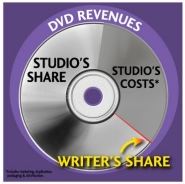I was wondering if it’s possible for you to tell me what agency Freddie Highmore is represented by.
–Jessi
No. And not only because your question was posted in the comments section of a random, unrelated topic.
However, I can tell you how to find out Freddie Highmore’s agent — or any actor’s agent. All film actors belong to some film acting union or guild — that’s how they get paid residuals when movies come out on video and television. In the U.S., that means SAG (Screen Actors Guild); the closest U.K. equivalent is probably Equity, but I trust an experienced U.K. reader will correct me if I’m wrong. For whichever guild, look up the phone number, call them, and ask for agent contact information. Voila.
The same basic process can be applied to directors or screenwriters.
Now for the more difficult question: why would you need to know who represents Freddie Highmore? Unless you’re calling to offer him gainful employment, an agent is not the one to help you. If you simply admire Highmore’s work — and why not, he’s a remarkable young actor — you’re much better off visiting a fan site where you can bond with others who feel likewise.

 A recent campaign by the WGA East does a graphical breakdown of the numbers, but let’s take Big Fish as an example. According to Video Business, its MSRP is $28.95, but most people will pay less than that. Let’s say $20, which is what you’d pay on Amazon. And Amazon is still pulling a 25% markup at that price; it buys the DVD wholesale at $16.
A recent campaign by the WGA East does a graphical breakdown of the numbers, but let’s take Big Fish as an example. According to Video Business, its MSRP is $28.95, but most people will pay less than that. Let’s say $20, which is what you’d pay on Amazon. And Amazon is still pulling a 25% markup at that price; it buys the DVD wholesale at $16.